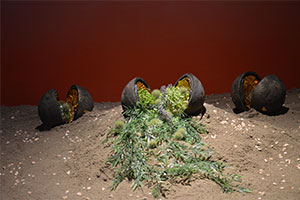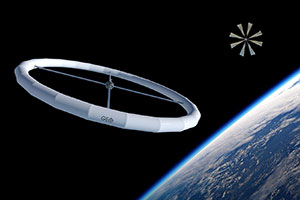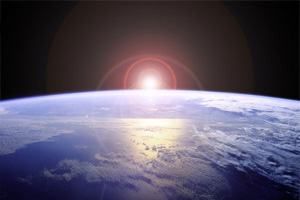EarthSeeds - Humanity's Ultimate Purpose in the Evolution of Life
Why Humanity?
Not only today, but throughout millennia humanity has wondered about its relation to the cosmos and about its ultimate purpose. Based on existing knowledge, myths, religions, and other models of thought were created to try to satisfy its ignorance of the answers to these fundamental questions of existence. As knowledge increased, all these models of thought were modified or replaced by newer ones in order to have a more precise and knowledgeable explanation of where we came from, who we are and what is our ultimate purpose.
Modern science has pointed out that, regardless of how life originated, every living organism on Earth is, in some sense, connected to and dependent upon the rest of life sharing the planet. Of these, the human species appears unique in that it alone can contemplate its existence, examine its past and look ahead to its future. Our species has also developed the means to look beyond Earth into the universe and has yet to find any hard evidence of life, as we know it.
Although humanity is considered to be an essential part of nature, the overwhelming success of our species poses an existential threat to the rest of life sharing this planet. There is no need to list the many problems facing humanity in the 21st century; be they environmental, ecological, political, economic or social, the problems are obvious, immediate and threatening. Most of these problems can be linked to the ever-expanding activities of the human species that has resulted in it occupying every available niche and exploiting every available earthly resource for living, working and maintaining society.
Just 10,000 years ago there were only about 5 million people on the planet living, at that time, mostly in caves. For these people planet Earth was surely the entire cosmos. 8,000 years later, there were 130 million people around when Christianity was born. By 1650 the human population grew to about 500 million. 200 years later, at the beginning of the industrial age, it doubled to 1 billion. Our planet still seemed large enough and resilient enough to support any human purpose. 100 years later, the number of humans increased to 2.5 billion. At this time, a new development appeared - all of humanity as well as all of Earth's inhabitants began living with the threat of nuclear destruction hanging over their future.
Now there are approximately 7.5 billion busy humans living, working and playing on a very crowded and ecologically endangered planet. The mothers of the next 2 billion people have already been born and by the year 2050 it is predicted that there will be at least 9 billion people sharing the planet with the rest of life that hasn't yet been pushed to extinction by human expansion. With the human population presently growing at a rate of almost 80 million human beings per year and as more and more species are becoming extinct at an alarming rate, is it not too soon to ask a fundamental question:
"Has humanity - and indeed, all terrestrial life - outgrown its home planet Earth?"
However, the advent of spaceflight marks the first time in the history of planet Earth that life has developed the means necessary to perpetuate its own survival in the cosmos. That means is the human species with the technological capabilities that it has developed. Indeed this may be humanity‘s ultimate purpose in the evolution of life on Earth.
As such, life on Earth has reached a point in its evolution where it is feasible for it to propagate in other parts of the universe. The arguments for spreading life are certainly more compelling than the arguments for not doing so. Life's expansion into the cosmos may or may not include humans but humans are essential for that expansion to happen. By accepting the responsibility to help propagate life beyond the home planet, humanity could be fulfilling its ultimate purpose and responsibility.




